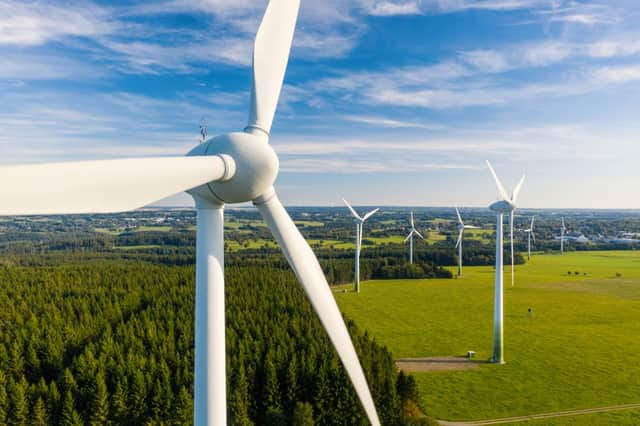The UK generated more energy from renewables than fossil fuel for the first time in 2020


The UK’s power grid generated more electricity from renewable sources than from fossil fuels for the first time ever in 2020, according to new analysis.
Last year was the greenest year on record, according to the National Grid, which manages energy supply and demand.
Advertisement
Hide AdAdvertisement
Hide AdEnergy generated from solar panels, biomass plants, offshore and onshore wind farms, plus hydro-electric plants, accounted for around 42 per cent of the total amount of electricity generated last year, according to the Ember and Agora Energiewende think tanks.
This is up from 37 per cent in 2019, with the increase thought to be in large part due to new wind farms which became operational in the last year.
What are the main renewable energy sources?
While some experts believe that biomass plants are not as eco-friendly as other renewable resources, the UK’s renewable output primary comes from wind.
Wind farms make up a significant contribution to the UK’s energy consumption, more so than any other individual type of renewable energy source, at around 25 per cent of the total, following a 14 per cent rise in wind power output.
Advertisement
Hide AdAdvertisement
Hide AdFossil fuels accounted for 41 per cent of the total, according to the analysis, with the bulk of this coming from gas-fired power plants. Just two per cent of that comes from coal, down significantly from 40 per cent in 2012, and expected to be entirely phased out by 2025.
Nuclear power stations generated the rest of the UK’s energy, contributing around 17 per cent.
A reduction in energy demand due to the pandemic has also been a factor, with total power demand dropping five per cent in 2020.
Will the UK meet its climate targets?
While the figures are welcomed by environmental campaigners, there are still concerns that the UK has some way to go to meet its ‘net zero’ emissions target by 2050, and further concern that the target itself is not adequate.
Advertisement
Hide AdAdvertisement
Hide AdIndependent groups such as the Climate Change Committee have called for the UK to shift entirely to decarbonised energy by 2035, rather than 2050.
However, planned expansion of the UK’s wind power capacity, particularly in offshore wind-farms, looks likely to have a significant impact on the need for gas generation.
Ember’s European programme lead, Charles Moore, said advances in wind power capacity will mean that “gas generation is set for further rapid declines over the 2020s”.
He commented: “It is clear the UK has started its journey towards gas power phase-out in 2035 as recommended by the Climate Change Committee.”